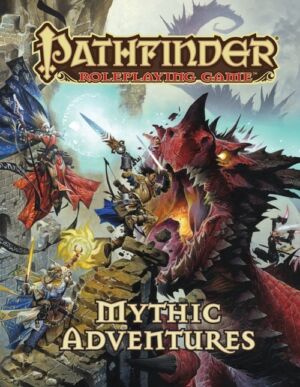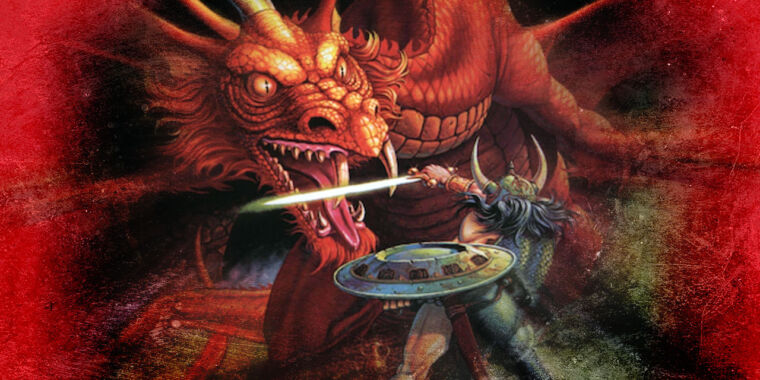On Friday, following days of uproar in the tabletop gaming community, Dungeons & Dragons publisher Wizards of the Coast (WotC) attempted to walk back the most controversial changes in a leaked draft update of its decades-old Open Gaming License (OGL). That effort might end up being too little too late, though.
Many prominent third-party RPG publishers now say they’re abandoning the OGL, regardless of what changes WotC officially releases in a coming new version. What’s more, many in the community have now lost faith in WotC’s stewardship of the licensed rules system that has underpinned so much of the industry’s last two decades.
Introducing the ORC
Pathfinder publisher Paizo Inc. is behind perhaps the biggest effort to move the industry away from WotC’s OGL. The company announced last Thursday that it is creating a new Open RPG Creative License (ORC) designed to be “open, perpetual, and irrevocable.”
That “irrevocable” italicization is in the original and intended as a pointed critique of WotC’s leaked plans to deauthorize the original version of the Open Gaming License after publishers signed the update. “Paizo does not believe that the OGL 1.0a can be ‘deauthorized,’ ever,” Paizo writes in its ORC announcement. “While we are prepared to argue that point in a court of law if need be, we don’t want to have to do that, and we know that many of our fellow publishers are not in a position to do so.”
Regardless of the legal fate of the OGL, Paizo says it wants to “irrevocably and unquestionably keep alive the spirit of the Open Game License” with its new ORC. The system-agnostic license, designed with the help of IP law firm Azora Law, will eventually be controlled and protected by a nonprofit akin to the Linux Foundation, the company says. Until that new license is ready, upcoming Paizo products will be printed without any explicit license, the company says.
Paizo’s ORC effort has already drawn some significant support from the community. Call of Cthulhu and Runequest publisher Chaosium, which never used the WotC OGL for its products in the first place, nonetheless writes that it’s “very happy to be working with the rest of the industry to come up with a system-wide OGL that anyone can use.”

Popular D&D module publisher Kobold Press has also lent its support to Paizo’s ORC product but stopped just short of committing to use it for its just-announced Core Fantasy ruleset, codenamed Project Black Flag. Instead, Kobold says it is “wait[ing] to see exactly what shape the Open Gaming License might take in this new era” and “will review the terms and consider whether they fit the needs of our audience and our business goals” when the updated OGL is eventually released.
Mutants & Masterminds publisher Green Ronin is also on board with the ORC, with founder and President Chris Pramas publicly comparing the current OGL fiasco to WotC’s disastrous attempt to push a new Game System License for the 4th edition of Dungeons & Dragons back in 2008.
“Who knows when new people will take over the D&D brand and who can say what their vision will be?” Pramas wrote 15 years ago of WotC’s Game System License push. “Who knows when the political winds at WotC will change again and things will get even more restrictive? We do not want to operate under such a cloud moving ahead…”

